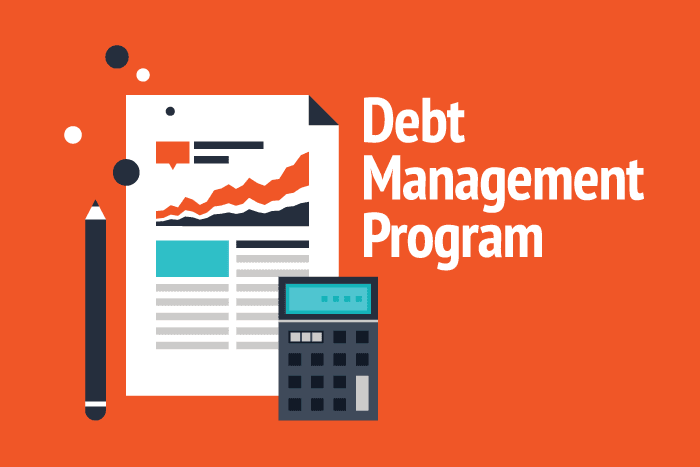Expert Tips and Approaches for Carrying Out a Successful Financial Debt Administration Plan
When it comes to browsing the complexities of financial debt management, having a well-thought-out plan is critical for achieving monetary security. From assessing your present monetary standing to bargaining with creditors, each step plays an essential duty in shaping a successful debt monitoring strategy.
Analyzing Your Current Financial Scenario
Prior to beginning on a debt administration strategy, it is vital to thoroughly examine your current economic standing. Comprehending your economic circumstance is the foundational action in the direction of efficiently managing and lowering your financial obligation.

Establishing a Realistic Budget Plan
Understanding your current economic scenario lays the foundation for developing a realistic spending plan that lines up with your debt monitoring goals and monetary capabilities. When developing a budget plan, it's essential to properly track your revenue, expenses, and financial obligation commitments. By classifying your costs, you can recognize areas where you might require to reduce back to free up funds for debt repayment.

Prioritizing and Dealing With Financial Obligations
To successfully restore control of your finances and job in the direction of monetary stability, focusing on and tackling your financial obligations is an important step in your financial debt administration strategy. Determine high-interest debts that are costing you the most cash and focus on paying them off.
After identifying your high-interest financial debts, think about using approaches like the financial obligation snowball or debt avalanche approach to pay them off systematically. The financial debt snowball method entails settling the tiniest financial obligations initially, while the financial obligation avalanche approach prioritizes financial debts with the highest rate of interest. Pick the method that lines up best with your economic goals and inspires you to maintain making development.
In addition, think about bargaining with lenders for reduced rates of interest or establishing a repayment strategy if you're battling to meet your existing responsibilities. Looking for assistance from a credit scores therapist or financial consultant can additionally provide important understandings and assistance on exactly how to properly tackle your debts - debt management plan services. By focusing on check my site and resolving your financial debts strategically, you can pave the method in the direction of a debt-free future and improved economic wellness
Bargaining With Creditors
When participating in financial debt monitoring, discussing with creditors is a vital action towards finding equally useful solutions for debt payment. Open communication with lenders can result in revised repayment plans, decreased rate of interest, and even negotiation deals. Prior to starting settlements, it is vital to have a clear understanding of your monetary circumstance, including your income, expenses, and the complete quantity of financial obligation owed. This info will not only aid you make sensible offers but also show to financial institutions that you are dedicated to fixing the financial obligation.

Building Healthy Monetary Behaviors
Integrating constant budgeting techniques is vital for growing healthy and balanced financial practices. Budgeting permits people to track their income and expenses, enabling them to make educated choices concerning their financial concerns. Establishing details financial goals, such as saving for emergency situations or retired life, can give a clear roadmap for managing money efficiently.
An additional trick aspect of building healthy financial practices is living within one's ways. This includes costs much less than what is made and staying clear of unneeded financial debt. Taking on a thrifty frame of mind and distinguishing between needs and wants can help people make even more sensible costs options.
Frequently examining monetary statements and keeping an eye on credit scores reports are crucial behaviors that advertise monetary understanding and obligation. By staying informed about their financial standing, people can recognize prospective problems at an early stage and take proactive steps to resolve them.
Moreover, establishing a savings habit, also with little amounts, can add dramatically to long-lasting financial security. Conserving on a regular basis not only constructs an economic pillow for unexpected expenditures but additionally promotes a feeling of discipline and duty towards money monitoring. By regularly exercising these practices, people can lay a strong structure for a stable economic future.
Conclusion
In conclusion, implementing a successful financial obligation management strategy requires a complete assessment of one's monetary scenario, the development of a sensible spending plan, prioritizing and dealing with financial debts, working out with lenders, and structure healthy financial routines (debt click for source management plan services). By adhering to these expert suggestions and methods, people can take control of their finances and work towards accomplishing economic security and freedom from debt
Comprehending your present economic scenario lays the foundation for developing a reasonable budget plan that lines up with your financial obligation monitoring objectives and economic capabilities.To effectively restore control of your financial resources and job in the direction of monetary security, focusing on and tackling your financial debts is a crucial step in your debt management strategy.After identifying your high-interest financial debts, take into consideration using strategies like the debt snowball or financial debt avalanche approach to pay them off methodically. The financial obligation snowball official site technique includes paying off the smallest financial obligations first, while the debt avalanche method focuses on financial debts with the greatest rate of interest rates.When engaging in debt monitoring, bargaining with financial institutions is an essential action towards finding equally valuable remedies for financial debt repayment.